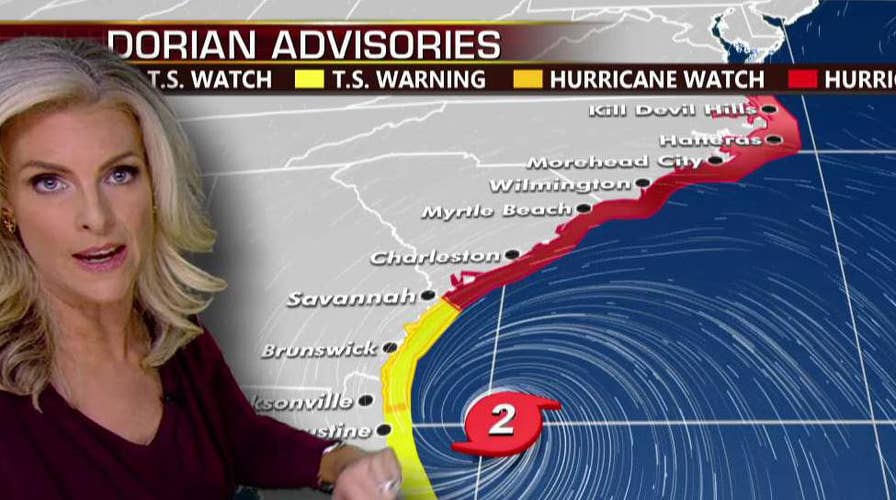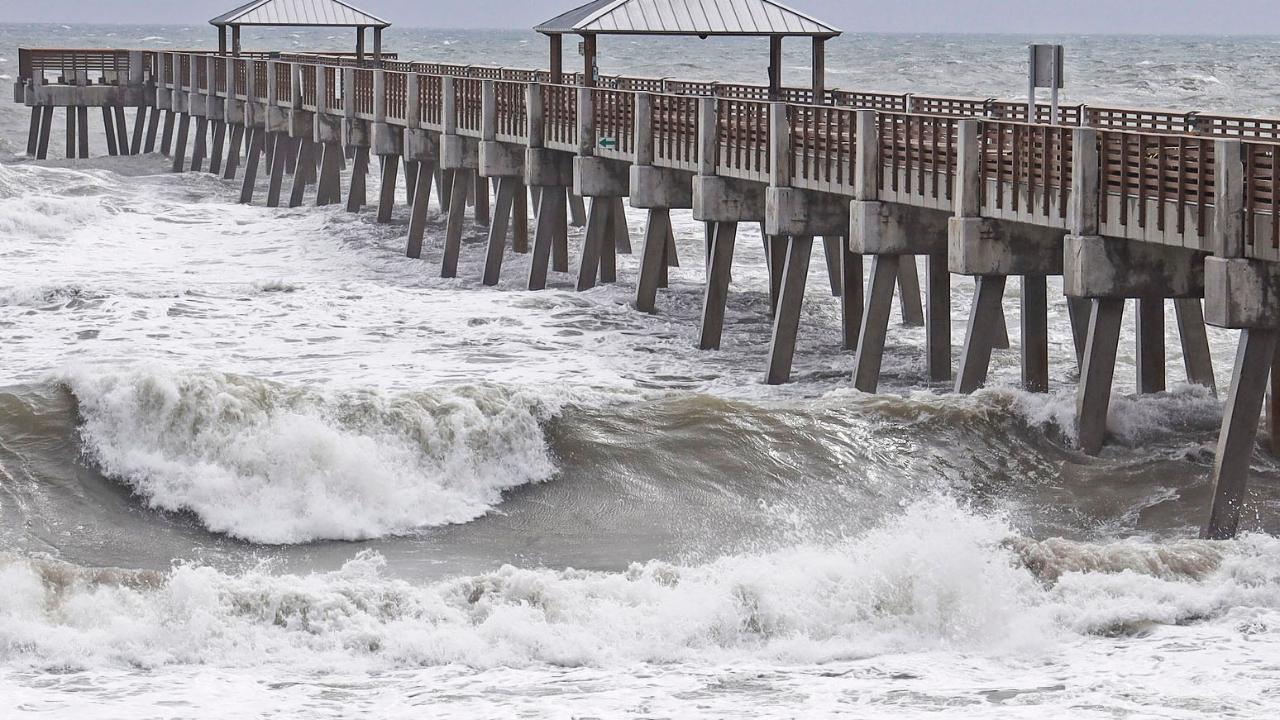Dorian forecast: Hurricane warnings extend into North Carolina
Senior meteorologist Janice Dean tracks Hurricane Dorian from the Fox Extreme Weather Center.
After leveling the Bahamas with deadly and destructive force, Hurricane Dorian churned toward the Southeast coast Wednesday, nicking Florida with tropical storm conditions along the state's northeastern coast and threatening a potentially powerful landfall in the Carolinas later this week.
The National Hurricane Center in Miami said at 2 p.m. ET Wednesday that the Category 2 storm’s maximum sustained winds were at 105 mph. Dorian was located about 115 miles east of Jacksonville, Fla., moving north-northwestward at 9 mph.
"We could be dealing with a very close brush or landfall across portions of South Carolina or North Carolina Thursday into Friday," Fox News Senior Meteorologist Janice Dean said Wednesday on "Fox & Friends. "We could certainly be feeling, at least, hurricane-force wind for a matter of hours."
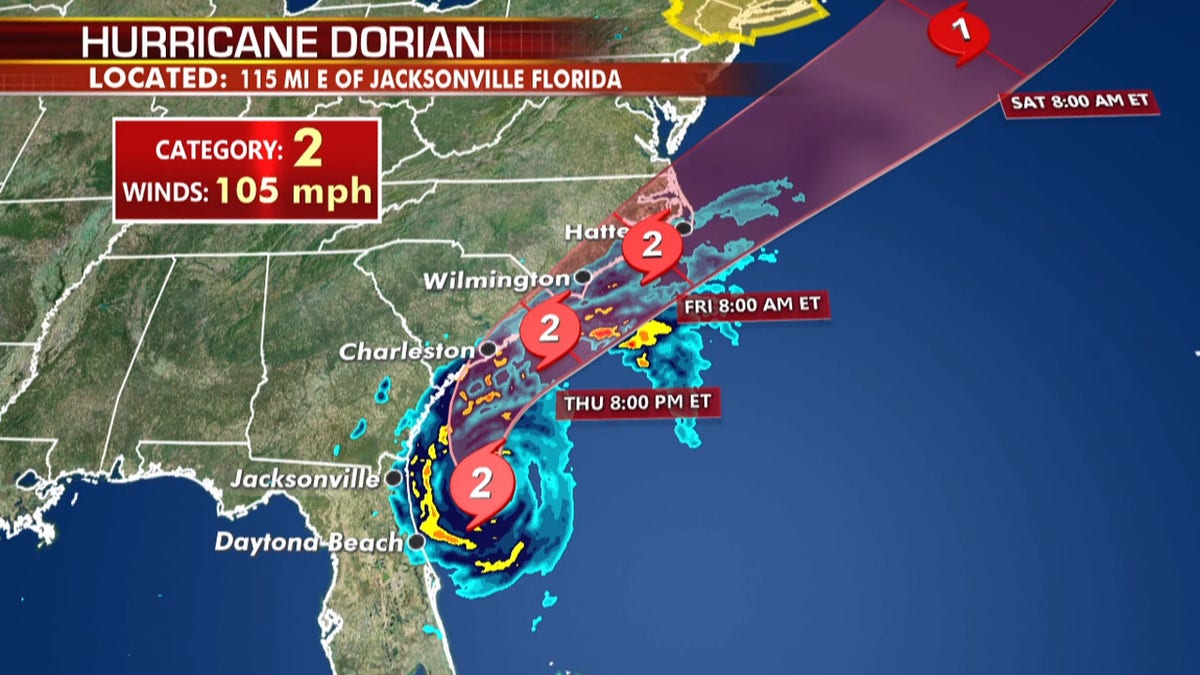
The forecast track of Hurricane Dorian.
Dorian's center is tracking offshore and nearly parallel to Florida's Atlantic shoreline, but is still bringing heavy rains and wind to parts of the Sunshine State. Hurricane warnings have been posted from north of the Savannah River to the North Carolina/Virginia border, encompassing the entire South and North Carolina coastlines.
HURRICANE DORIAN LASHES FLORIDA'S ATLANTIC COAST AFTER DECIMATING BAHAMAS
In Florida, there was a peak of 18,000 customers reported without power at 6 a.m. on Wednesday, with the greatest number of outages being reported in Volusia and St. Johns Counties, according to an update from the state's division of emergency management. By 11:30 a.m., that number dropped to around 10,000 outages, in Brevard, St. Johns and Volusia counties.
The outer bands of the storm moved across central Florida late Tuesday night, causing a tree to fall on an assisted living facility in DeLand. Officials told FOX35 no injuries were reported.
While Dorian avoided a direct hit on Florida, the threat is increasing for a greater impact in Georgia and particularly South and North Carolina, where a landfall may still occur.
"We are looking at a close brush or a landfall across portions of South Carolina, North Carolina," Dean said Wednesday.

A sign at the Lazaretto Creek boat ramp as is nearly underwater at high tide as Hurricane Dorian makes its way up the east coast, Wednesday, Sept. 4, 2019, toward Tybee Island, Ga. (AP Photo/Stephen B. Morton)
South Carolina Gov. Henry McMaster ordered mandatory evacuations along the state's 190-mile coast and turned all lanes of Interstate 26 into a one-way evacuation route heading west. Georgia officials did the same with Interstate 16 after Gov. Brian Kemp ordered coastal evacuations.
In Savannah, buses were being used to evacuate people to Augusta as Dorian approached the coast, GBP radio news reported.
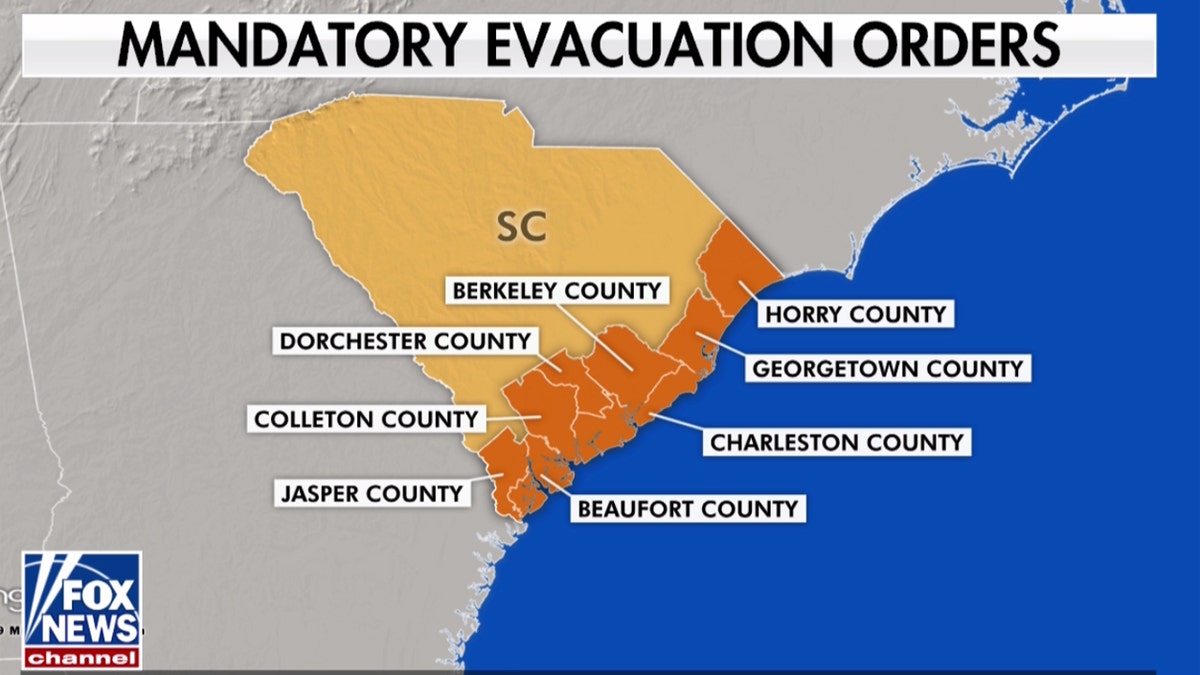
Mandatory evacuation orders have been issued in coastal South Carolina ahead of Hurricane Dorian.
Gov. McMaster urged coastal residents that leaving is "the only way to be safe."
BOY RESCUED FROM FIERCE ATLANTIC OCEAN TIDE ON FLORIDA COAST AS HURRICANE DORIAN NEARS
Forecasters and public officials were concerned that regardless of the storm's strength, it could dump a dangerous amount of water on the Carolinas.
“All of this creates the possibility of dramatic flooding in the Lowcountry,” McMaster said. “This is a very serious storm. A westward shift of just a few miles could bring enormous damage to our state. Heed the warnings.”
On "Fox & Friends," South Carolina Republican Sen. Tim Scott echoed calls to evacuate.
"One of the things I've been saying is that complacency leads to catastrophes, not only for you but for the emergency responders that will be charged with the responsibility to come to get you."
In North Carolina, Gov. Roy Cooper ordered a mandatory evacuation of barrier islands at 8 a.m. Wednesday, which includes the Outer Banks, Shackleford Banks, Bogue Banks and Bald Head Island, saying the storm posed an “imminent threat.”

The impacts from Hurricane Dorian. (Fox News)
The National Guard said Wednesday that 8,000 troops in four states are ready for hurricane relief efforts. Defense Secretary Mark Esper said Wednesday the military was prepared to "provide for the people of Florida, Georgia, South Carolina, North Carolina, and others."
"As this storm moves north, Georgia, South Carolina, and North Carolina will in succession, I believe, add more forces to National Guard structures that are in place," Air Force Gen. Joseph Lengyel, chief of the National Guard Bureau, said in a statement.
CLICK HERE FOR THE FOX NEWS APP
Attorney Henry Grimball, 71, told the Associated Press he and his wife would likely ride out Dorian in their four-story home in Charleston's downtown historic district.
"These houses have been here since 1770," Grimball said, gesturing to the white and pastel houses dotting his neighborhood. "They've been through a lot."
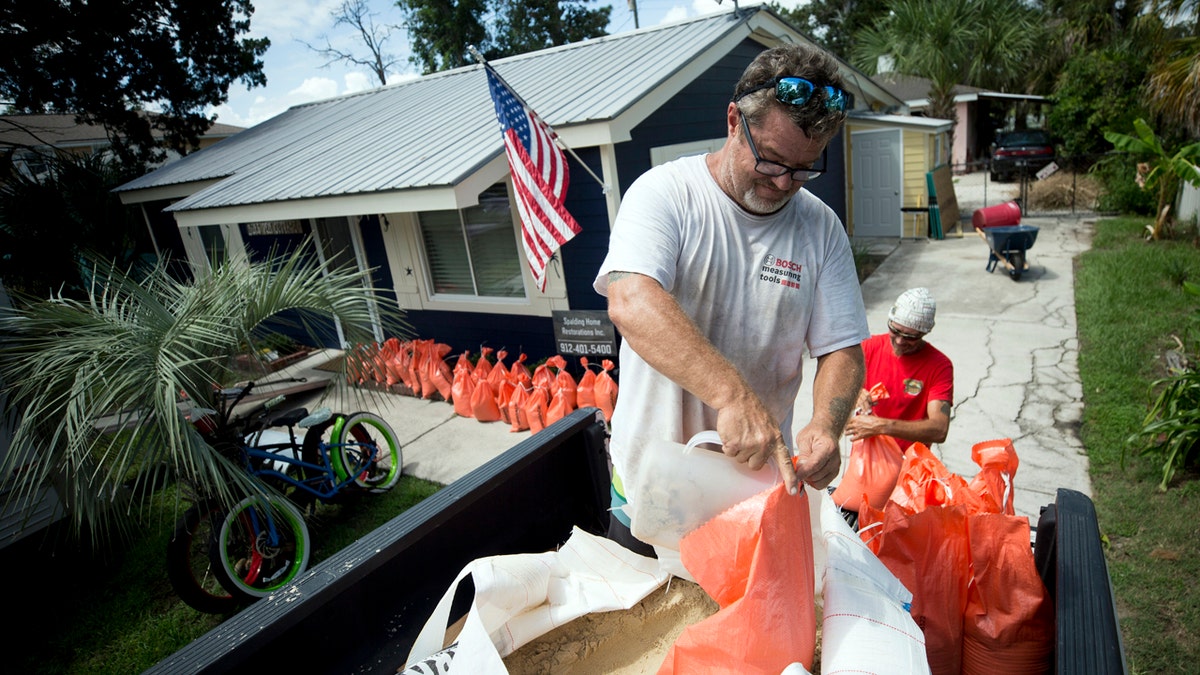
Joey Spalding, left, fills sandbags with the help of his friend Tom Sikes, right, at Spalding's home in Tybee Island, Ga., Tuesday, Sept. 3, 2019, before the potential arrival of Hurricane Dorian. (AP Photo/Stephen B. Morton)
Grimball said he would reconsider, however, if the storm became a Category 3 or stronger hurricane: He remembers the devastation from Hurricane Hugo in 1989.
Hugo slammed into South Carolina's coast with winds gusting as high as 108 mph in Charleston, killing several dozen people, causing nearly $6 billion in damage and toppling a massive magnolia in Grimball's backyard.
"It gets to be really dangerous," he said.
Fox News' Lucas Tomlinson and The Associated Press contributed to this report.








































